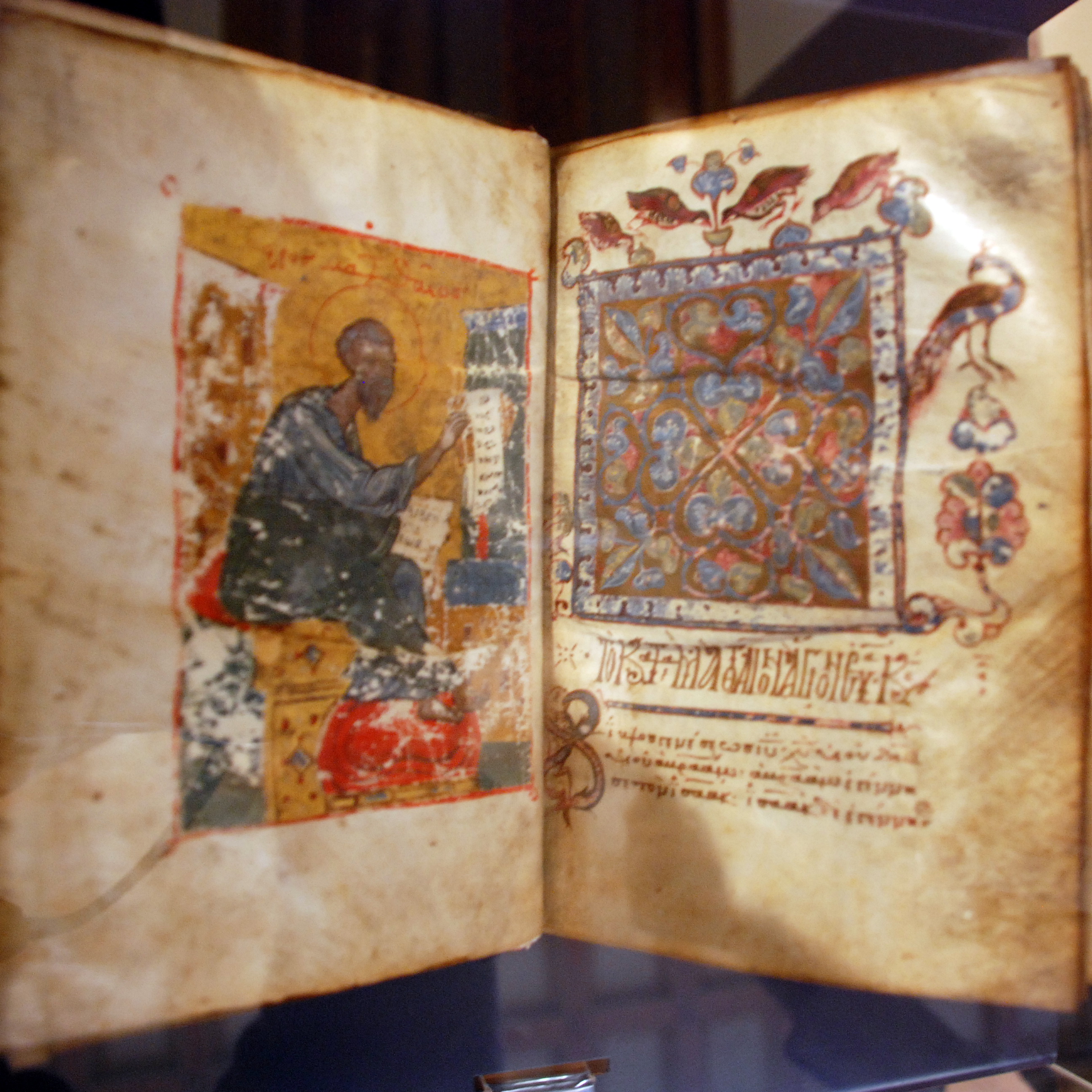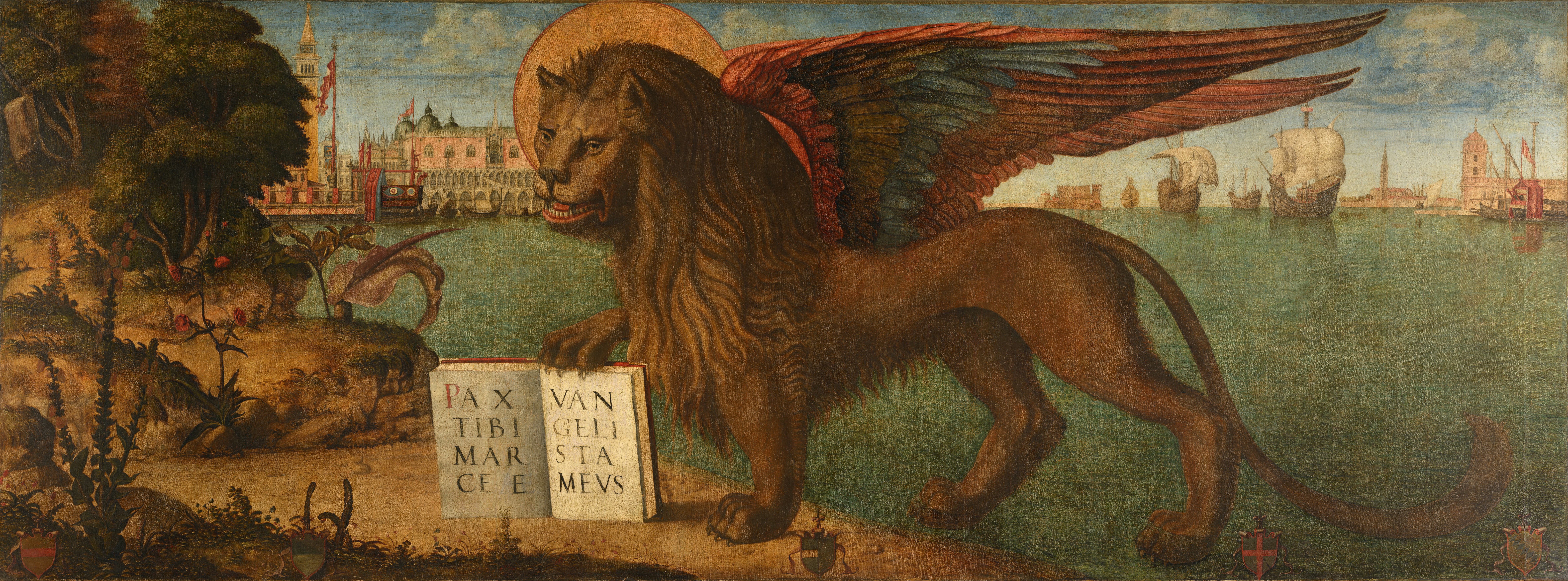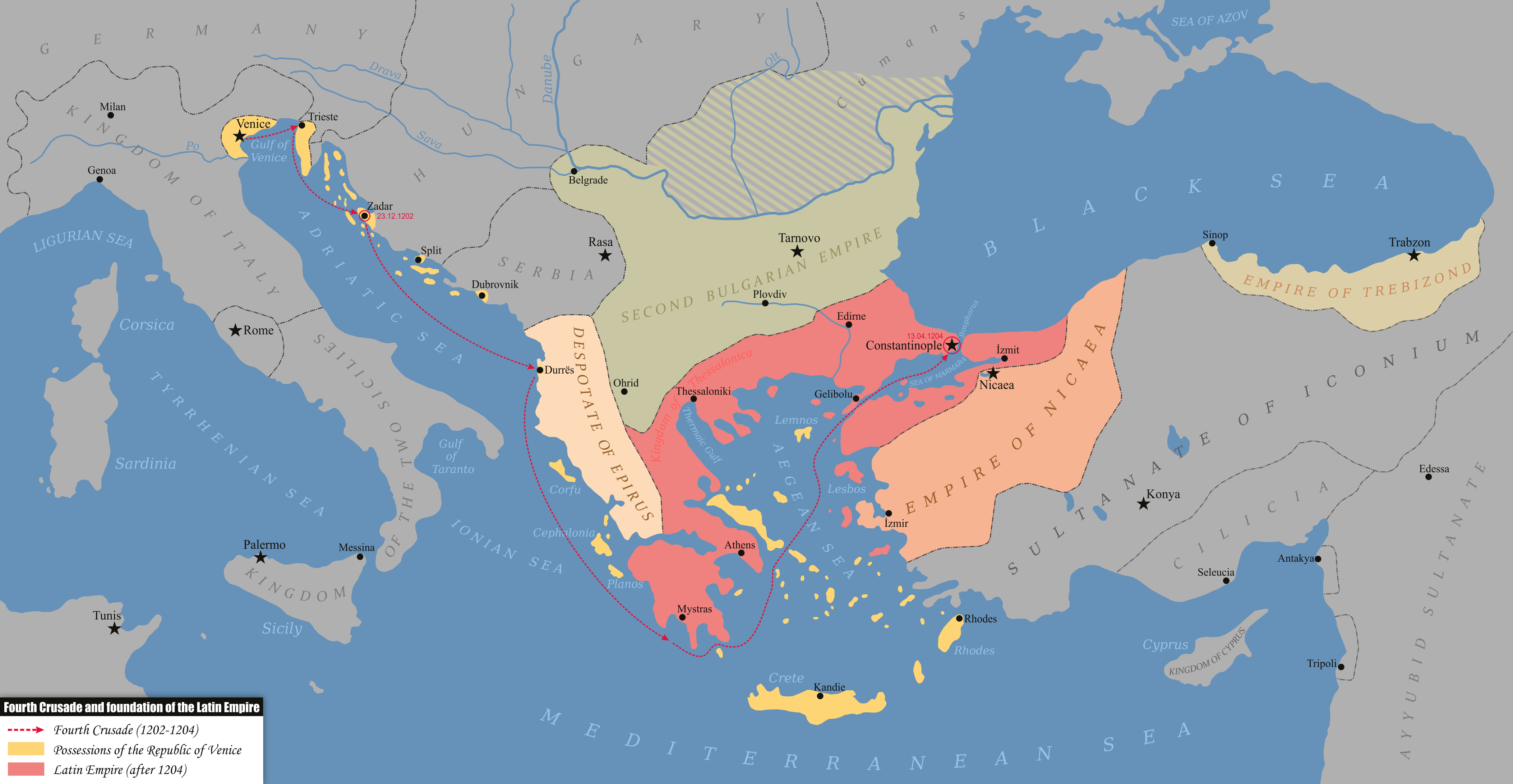|
Trebizond Gospel
Trebizond Gospel, ℓ ''243'' (in the Biblical manuscript#Gregory-Aland, Gregory-Aland numbering), is a Byzantine Empire, Byzantine illuminated manuscript with the text of Gospel Lectionary, dating Palaeography, palaeographically to the 11th century with 15 parchment leaves (33 by 36.5 cm) from the 10th century or earlier. Description The text is written in two columns per page, 18 lines per page in Uncial script, uncial letters.Kurt Aland, K. Aland, M. Welte, B. Köster, K. Junack, ''Kurzgefasste Liste der griechischen Handschriften des Neues Testaments'', (Berlin, New York: Walter de Gruyter, 1994), p. 243. It contains 15 pictures.Caspar René Gregory, C. R. Gregory, "Textkritik des Neuen Testaments", Leipzig 1900, vol. 1, p. 408. The book was richly decorated with gold and jewels by the Trapezuntine Emperor Andronicus II of Trebizond, Andronicus. In 1858, the ''Trebizond Gospel'' was presented by the Orthodox Metropolitan of Trabzon, Trebizond to the Emperor Alexander II ... [...More Info...] [...Related Items...] OR: [Wikipedia] [Google] [Baidu] |
Mark The Evangelist
Mark the Evangelist ( la, Marcus; grc-gre, Μᾶρκος, Mârkos; arc, ܡܪܩܘܣ, translit=Marqōs; Ge'ez: ማርቆስ; ), also known as Saint Mark, is the person who is traditionally ascribed to be the author of the Gospel of Mark. According to Church tradition, Mark founded the episcopal see of Alexandria, which was one of the five most important sees of early Christianity. His feast day is celebrated on April 25, and his symbol is the winged lion. Mark's identity According to William Lane (1974), an "unbroken tradition" identifies Mark the Evangelist with John Mark, and John Mark as the cousin of Barnabas. However, Hippolytus of Rome in ''On the Seventy Apostles'' distinguishes Mark the Evangelist (2 Tim 4:11), John Mark (Acts 12:12, 25; 13:5, 13; 15:37), and Mark the cousin of Barnabas (Col 4:10; Phlm 1:24). According to Hippolytus, they all belonged to the "Seventy Disciples" who were sent out by Jesus to disseminate the gospel (Luke 10:1ff.) in Judea. Accord ... [...More Info...] [...Related Items...] OR: [Wikipedia] [Google] [Baidu] |
Trabzon
Trabzon (; Ancient Greek: Tραπεζοῦς (''Trapezous''), Ophitic Pontic Greek: Τραπεζούντα (''Trapezounta''); Georgian: ტრაპიზონი (''Trapizoni'')), historically known as Trebizond in English, is a city on the Black Sea coast of northeastern Turkey and the capital of Trabzon Province. Trabzon, located on the historical Silk Road, became a melting pot of religions, languages and culture for centuries and a trade gateway to Persia in the southeast and the Caucasus to the northeast. The Venetian and Genoese merchants paid visits to Trabzon during the medieval period and sold silk, linen and woolen fabric. Both republics had merchant colonies within the city – Leonkastron and the former "Venetian castle" – that played a role to Trabzon similar to the one Galata played to Constantinople (modern Istanbul). Trabzon formed the basis of several states in its long history and was the capital city of the Empire of Trebizond between 1204 and 1461. Durin ... [...More Info...] [...Related Items...] OR: [Wikipedia] [Google] [Baidu] |
10th-century Illuminated Manuscripts
1 (one, unit, unity) is a number representing a single or the only entity. 1 is also a numerical digit and represents a single unit (measurement), unit of counting or measurement. For example, a line segment of ''unit length'' is a line segment of length 1. In conventions of sign where zero is considered neither positive nor negative, 1 is the first and smallest Positive number, positive integer. It is also sometimes considered the first of the sequence (mathematics), infinite sequence of natural numbers, followed by 2, although by other definitions 1 is the second natural number, following 0. The fundamental mathematical property of 1 is to be a multiplicative identity, meaning that any number multiplied by 1 equals the same number. Most if not all properties of 1 can be deduced from this. In advanced mathematics, a multiplicative identity is often denoted 1, even if it is not a number. 1 is by convention not considered a prime number; this was not universally ac ... [...More Info...] [...Related Items...] OR: [Wikipedia] [Google] [Baidu] |
National Library Of Russia Collection
National may refer to: Common uses * Nation or country ** Nationality – a ''national'' is a person who is subject to a nation, regardless of whether the person has full rights as a citizen Places in the United States * National, Maryland, census-designated place * National, Nevada, ghost town * National, Utah, ghost town * National, West Virginia, unincorporated community Commerce * National (brand), a brand name of electronic goods from Panasonic * National Benzole (or simply known as National), former petrol station chain in the UK, merged with BP * National Car Rental, an American rental car company * National Energy Systems, a former name of Eco Marine Power * National Entertainment Commission, a former name of the Media Rating Council * National Motor Vehicle Company, Indianapolis, Indiana, USA 1900-1924 * National Supermarkets, a defunct American grocery store chain * National String Instrument Corporation, a guitar company formed to manufacture the first resonator gui ... [...More Info...] [...Related Items...] OR: [Wikipedia] [Google] [Baidu] |
Greek New Testament Lectionaries
Greek may refer to: Greece Anything of, from, or related to Greece, a country in Southern Europe: *Greeks, an ethnic group. *Greek language, a branch of the Indo-European language family. **Proto-Greek language, the assumed last common ancestor of all known varieties of Greek. **Mycenaean Greek, most ancient attested form of the language (16th to 11th centuries BC). **Ancient Greek, forms of the language used c. 1000–330 BC. **Koine Greek, common form of Greek spoken and written during Classical antiquity. **Medieval Greek or Byzantine Language, language used between the Middle Ages and the Ottoman conquest of Constantinople. **Modern Greek, varieties spoken in the modern era (from 1453 AD). *Greek alphabet, script used to write the Greek language. *Greek Orthodox Church, several Churches of the Eastern Orthodox Church. *Ancient Greece, the ancient civilization before the end of Antiquity. *Old Greek, the language as spoken from Late Antiquity to around 1500 AD. Other uses * '' ... [...More Info...] [...Related Items...] OR: [Wikipedia] [Google] [Baidu] |
History Of Trabzon
Trabzon (; Ancient Greek: Tραπεζοῦς (''Trapezous''), Ophitic Pontic Greek: Τραπεζούντα (''Trapezounta''); Georgian: ტრაპიზონი (''Trapizoni'')), historically known as Trebizond in English, is a city on the Black Sea coast of northeastern Turkey and the capital of Trabzon Province. Trabzon, located on the historical Silk Road, became a melting pot of religions, languages and culture for centuries and a trade gateway to Persia in the southeast and the Caucasus to the northeast. The Venetian and Genoese merchants paid visits to Trabzon during the medieval period and sold silk, linen and woolen fabric. Both republics had merchant colonies within the city – Leonkastron and the former "Venetian castle" – that played a role to Trabzon similar to the one Galata played to Constantinople (modern Istanbul). Trabzon formed the basis of several states in its long history and was the capital city of the Empire of Trebizond between 1204 and 1461. Durin ... [...More Info...] [...Related Items...] OR: [Wikipedia] [Google] [Baidu] |
Tourist Attractions In Saint Petersburg
Tourism is travel for pleasure or business; also the theory and practice of touring, the business of attracting, accommodating, and entertaining tourists, and the business of operating tours. The World Tourism Organization defines tourism more generally, in terms which go "beyond the common perception of tourism as being limited to holiday activity only", as people "travelling to and staying in places outside their usual environment for not more than one consecutive year for leisure and not less than 24 hours, business and other purposes". Tourism can be domestic (within the traveller's own country) or international, and international tourism has both incoming and outgoing implications on a country's balance of payments. Tourism numbers declined as a result of a strong economic slowdown (the late-2000s recession) between the second half of 2008 and the end of 2009, and in consequence of the outbreak of the 2009 H1N1 influenza virus, but slowly recovered until the COVID-19 ... [...More Info...] [...Related Items...] OR: [Wikipedia] [Google] [Baidu] |
Empire Of Trebizond
The Empire of Trebizond, or Trapezuntine Empire, was a monarchy and one of three successor rump states of the Byzantine Empire, along with the Despotate of the Morea and the Principality of Theodoro, that flourished during the 13th through to the 15th century, consisting of the far northeastern corner of Anatolia (the Pontus) and the southern Crimea. The empire was formed in 1204 with the help of the Georgian queen Tamar after the Georgian expedition in Chaldia and Paphlagonia, commanded by Alexios Komnenos a few weeks before the sack of Constantinople. Alexios later declared himself Emperor and established himself in Trebizond (modern day Trabzon, Turkey). Alexios and David Komnenos, grandsons and last male descendants of deposed Emperor Andronikos I Komnenos, pressed their claims as "Roman emperors" against Byzantine Emperor Alexios V Doukas. The later Byzantine emperors, as well as Byzantine authors, such as George Pachymeres, Nicephorus Gregoras and to some extent Trapezun ... [...More Info...] [...Related Items...] OR: [Wikipedia] [Google] [Baidu] |
Gospel Books
Gospel originally meant the Christian message ("the gospel"), but in the 2nd century it came to be used also for the books in which the message was set out. In this sense a gospel can be defined as a loose-knit, episodic narrative of the words and deeds of Jesus, culminating in his trial and death and concluding with various reports of his post-resurrection appearances. Modern scholars are cautious of relying on the gospels uncritically, but nevertheless, they provide a good idea of the public career of Jesus, and critical study can attempt to distinguish the original ideas of Jesus from those of the later authors. The four canonical gospels were probably written between AD 66 and 110. All four were anonymous (with the modern names added in the 2nd century), almost certainly none were by eyewitnesses, and all are the end-products of long oral and written transmission. Mark was the first to be written, using a variety of sources. The authors of Matthew and Luke both independently ... [...More Info...] [...Related Items...] OR: [Wikipedia] [Google] [Baidu] |
Lectionary 245
Lectionary 245, designated by siglum ℓ ''245'' (in the Gregory-Aland numbering) is a Greek manuscript of the New Testament, on parchment. Palaeographically it has been assigned to the 9th century.''Handschriftenliste'' at the ''INTF'' The manuscript has survived on only two leaves. Description The codex contains lessons from the s lectionary (''Evangelistarium'') and from the Book of Psalms. The first leaf contains lesson from Psalm 65, the second leaf with lesson from the[...More Info...] [...Related Items...] OR: [Wikipedia] [Google] [Baidu] |
Lectionary 244
Lectionary 244, designated by siglum ℓ ''244'' (in the Gregory-Aland numbering) is a Greek manuscript of the New Testament, on parchment. Palaeographically it has been assigned to the 9th century.''Handschriftenliste'' at the ''INTF'' The manuscript has survived on only one leaf. Description The codex contains lessons from the s (''Evangelistarium''), it contains only fragments of two lessons with the texts of Luke 1:24-27 and Matthew 20:10-29. The text is written in Greek |
List Of New Testament Lectionaries
A ''list'' is any set of items in a row. List or lists may also refer to: People * List (surname) Organizations * List College, an undergraduate division of the Jewish Theological Seminary of America * SC Germania List, German rugby union club Other uses * Angle of list, the leaning to either port or starboard of a ship * List (information), an ordered collection of pieces of information ** List (abstract data type), a method to organize data in computer science * List on Sylt, previously called List, the northernmost village in Germany, on the island of Sylt * ''List'', an alternative term for ''roll'' in flight dynamics * To ''list'' a building, etc., in the UK it means to designate it a listed building that may not be altered without permission * Lists (jousting), the barriers used to designate the tournament area where medieval knights jousted * ''The Book of Lists'', an American series of books with unusual lists See also * The List (other) * Listing (di ... [...More Info...] [...Related Items...] OR: [Wikipedia] [Google] [Baidu] |







